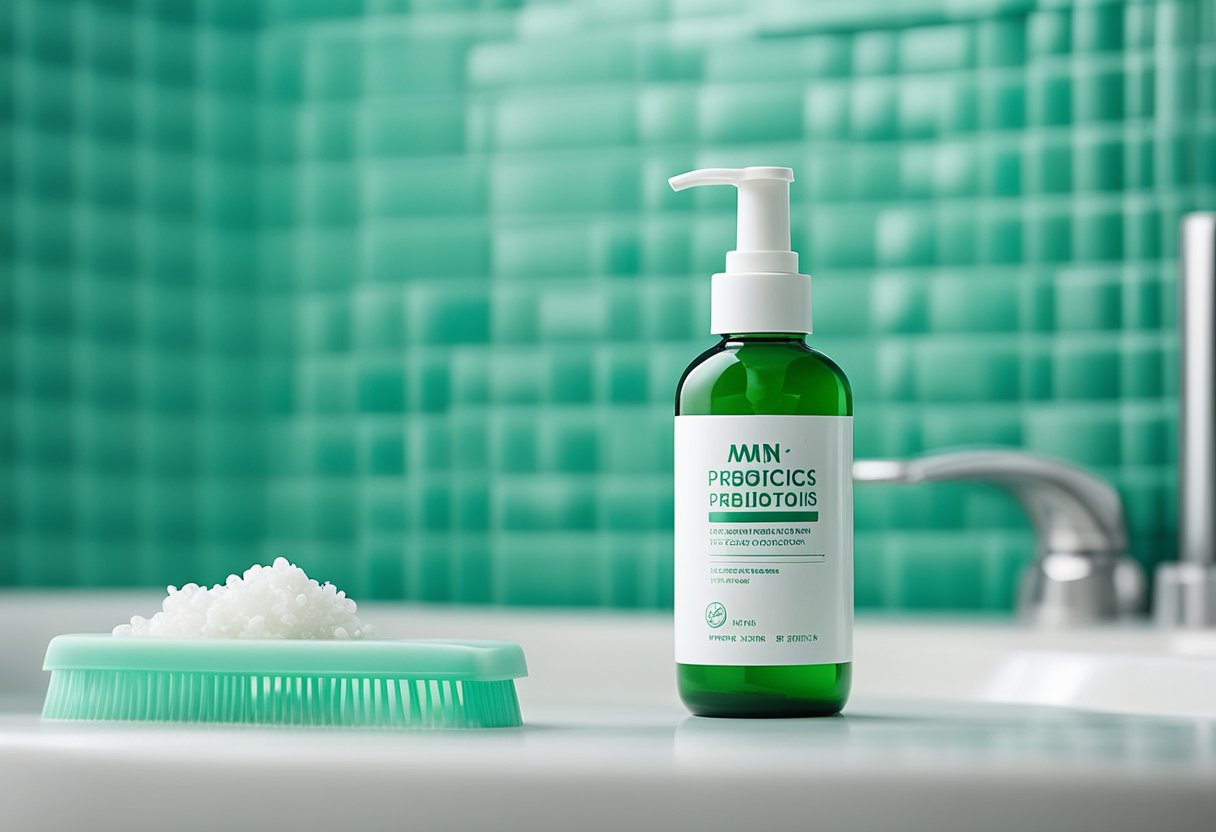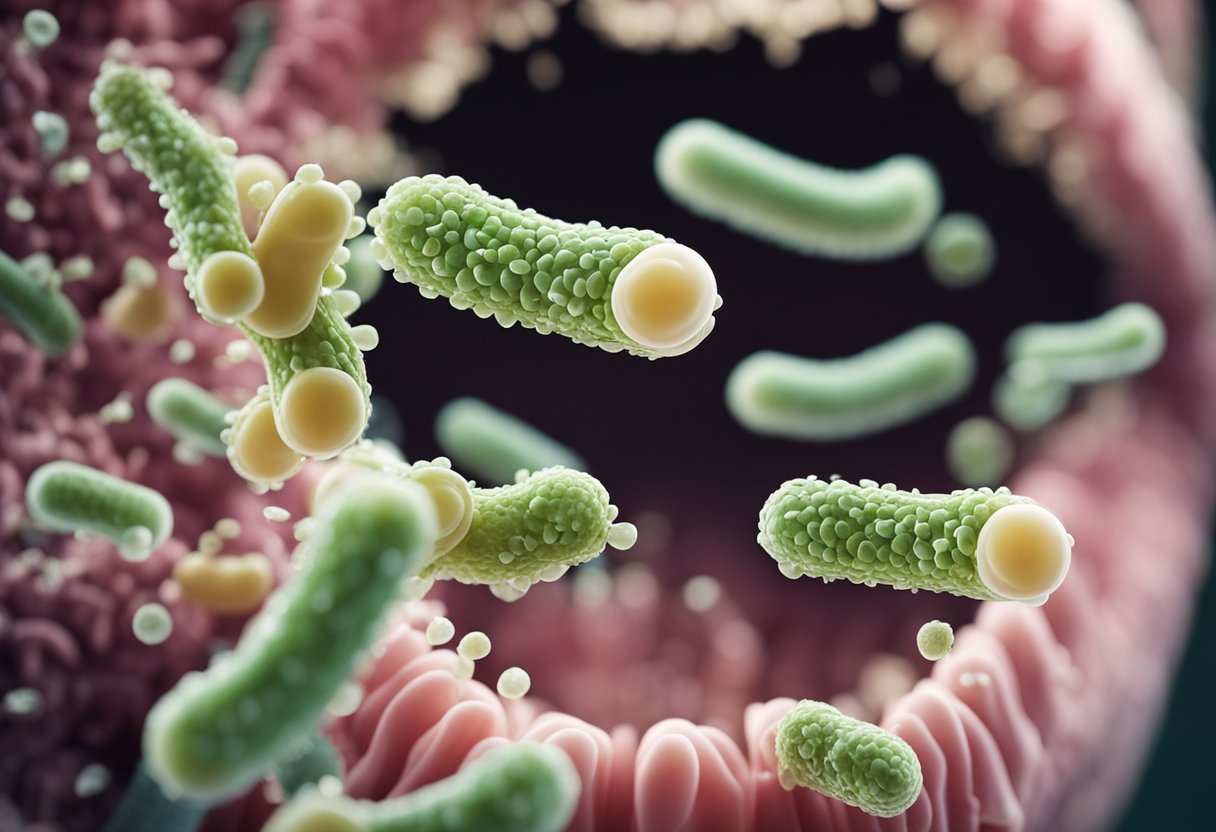Bad breath, medically known as halitosis, can be an embarrassing and sometimes persistent condition. While it is often caused by factors such as diet, poor oral hygiene, or certain health issues, there’s a growing interest in the role of probiotics as a potential remedy. Probiotics are live microorganisms that, when administered in adequate amounts, confer a health benefit on the host. In the context of oral health, these beneficial bacteria can help to balance the microbial environment in your mouth.

Probiotics work by introducing beneficial bacteria that can compete with the harmful bacteria responsible for bad breath. The idea is that by increasing the presence of good bacteria, they help to reduce the populations of the bad ones that produce foul-smelling gases as a byproduct of their metabolism. Specific strains of probiotics have been identified that are effective in colonizing the oral cavity to create a healthier balance of microbes.
Incorporating probiotics into your daily routine may contribute to the maintenance of a healthy oral microbiome. However, it’s important to note that probiotics are not a standalone cure for bad breath; they should be used in conjunction with good oral hygiene practices like brushing and flossing. Moreover, because individual responses to probiotics can vary, and because bad breath can have various underlying causes, the effectiveness of probiotics will differ from person to person.
Understanding Probiotics

In this section, you’ll gain insight into what probiotics are, their history, and how they play a role in maintaining oral health.
Definition and Function
Probiotics are live microorganisms that, when administered in adequate amounts, confer a health benefit on the host. Essentially, they are good bacteria that contribute to your body’s balance of microbiota.
History and Sources
Probiotics have a rich history with evidence of use in fermented foods for thousands of years. Today, you can find probiotics in:
- Yogurt
- Fermented foods like sauerkraut and kimchi
- Dietary supplements
Mechanism in Oral Health
In the context of oral health, probiotics help by interacting with the natural bacteria in your mouth. They can:
- Compete with harmful bacteria.
- Help restore the balance of the oral microbiome.
- Potentially reduce odor-causing bacteria.
Probiotics and Bad Breath

Exploring the potential of probiotics in combatting halitosis highlights a novel approach to managing oral health by leveraging beneficial bacteria.
Causes of Bad Breath
Bad breath, or halitosis, arises primarily from the overpopulation of odor-causing bacteria within your mouth. These bacteria metabolize food particles and proteins, producing volatile sulfur compounds (VSCs) that lead to an unpleasant odor. Factors contributing to bad breath include:
- Poor oral hygiene: If you don’t regularly brush and floss, food particles can remain in your mouth, fostering bacterial growth.
- Diet: Certain foods like garlic and onion are known to affect breath odor.
- Dry Mouth (Xerostomia): Saliva helps clean your mouth; without it, bacteria thrive.
- Smoking and Alcohol Consumption: Both can lead to a drier mouth and exacerbated bacterial growth.
- Dental Issues: Cavities and gum diseases provide more crevices for bacteria to inhabit.
- Medical Conditions: Some systemic illnesses like diabetes or liver and kidney problems can be underlying causes of bad breath.
Role of Probiotics in Treating Halitosis
Probiotics are live microorganisms that, when administered in adequate amounts, confer a health benefit on the host; in the context of oral health, they are believed to overwhelm harmful bacteria and restore balance to your oral microbiome. Evidence suggests that specific strains of probiotics can:
- Reduce Odor-causing Bacteria: They compete for the same nutrients and spaces in the mouth.
- Decrease Volatile Sulfur Compounds (VSCs): Some probiotics have been found to lower the levels of VSCs, which are largely responsible for bad breath.
- Enhance Immune Response: They might improve your oral immune system’s ability to fight the pathogens responsible for halitosis.
- Promote Healthy Oral Flora: Probiotics can support the growth of beneficial bacteria, contributing to a healthier oral environment.
Ingestion methods vary, including lozenges, gums, mouthwashes, and oral supplements. It is important for you to choose strains known for oral health benefits like Lactobacillus reuteri and Streptococcus salivarius K12. Remember, for individuals with specific medical conditions, or if traditional oral hygiene practices have not resolved issues, consulting a healthcare provider is recommended.
Choosing the Right Probiotics
When selecting probiotics for bad breath, it’s crucial to understand the types of probiotic strains effective for oral health and the criteria that define their effectiveness.
Types of Probiotic Strains
Certain probiotic strains are more effective against bad breath than others. When looking for a probiotic supplement, focus on strains that have a history of improving oral health:
- Lactobacillus salivarius: Known to combat odor-causing bacteria in the mouth.
- Streptococcus salivarius K12: Helps maintain a balanced oral microbiome.
- Lactobacillus reuteri: Can improve gum health and reduce malodor.
Selection Criteria for Effectiveness
You want a probiotic that not only includes the right strains but also meets certain standards to ensure it works:
- CFU Count: Look for a colony-forming unit (CFU) count specific for oral health—usually in the billions.
- Certification: Check for quality certifications like NSF, GMP, or FDA approval to ensure product integrity.
- Storage and Viability: Probiotics should be alive when you take them. Check if they need refrigeration to maintain potency.
- Form: Oral probiotics come in lozenges, chewables, or gums that can be more effective in targeting the mouth’s microbiome compared to pills.
Usage and Administration
Probiotics for bad breath can be beneficial when used properly. It’s important for you to understand the recommended dosage and methods of consumption to optimize results.
Recommended Dosage
For the management of halitosis using probiotics, the dosage can vary depending on the specific product and strain of bacteria. Generally, the recommended dosage is often outlined by the product manufacturer and should be followed closely. For example, strains like Lactobacillus reuteri and Streptococcus salivarius are commonly used, and dosages may range from 1 to 2 tablets or lozenges per day. It’s important to check the label of the product you choose for exact dosage instructions.
Methods of Consumption
Probiotics for bad breath come in various forms such as:
- Chewable tablets: These should be chewed thoroughly before swallowing.
- Lozenges: Allow them to dissolve slowly in your mouth.
- Mouthwashes and sprays: Swish these around your mouth for the recommended time before spitting them out.
- Gum: Chew as you would any regular gum to release the probiotics gradually.
Always use these products as directed, paying careful attention to the method of administration to ensure maximum efficacy.
Potential Side Effects and Considerations
When incorporating probiotics into your routine for managing bad breath, it’s crucial to be aware of possible side effects and the importance of consulting healthcare providers.
Common Side Effects
- Bloating: It’s not uncommon to experience bloating when starting probiotics.
- Digestive Discomfort: Some individuals might encounter digestive issues such as gas or constipation, although these effects are typically mild and temporary.
Consultation with Healthcare Providers
- Safety for Particular Groups: Probiotics are generally safe, but if you have a compromised immune system or other underlying health conditions, it’s essential to talk to your doctor first.
- Personalized Advice: Since the effectiveness and side effects of probiotics can vary from person to person, a healthcare provider can offer tailored advice based on your health history.
Frequently Asked Questions
If you’re seeking to address bad breath, also known as halitosis, through the use of probiotics, the following FAQs encapsulate some of the essential information you need to know.
What specific strains of probiotics are effective against halitosis?
Certain strains such as Streptococcus salivarius K12 and Lactobacillus reuteri have been identified as effective in combating the bacteria that contribute to bad breath.
How do oral probiotics differ from regular probiotics in managing halitosis?
Oral probiotics are specifically tailored to target and balance the oral microbiome, whereas regular probiotics are more focused on gastrointestinal health.
Are there any clinical studies supporting the efficacy of probiotics in treating bad breath?
Yes, various studies have indicated that probiotics can help restore good bacteria balance in the mouth and have a positive effect on managing bad breath.
Can probiotics target gut-related issues that are linked to bad breath?
Probiotics can address digestive imbalances that may have a knock-on effect on oral health, including the reduction of foul-smelling compounds that can cause bad breath.
What are the recommended dosages for probiotics to help alleviate bad breath?
The recommended dosage can vary, but it typically ranges from 1 billion to 10 billion CFUs (colony-forming units) per day, depending on the specific probiotic strain and product formulation.
Which over-the-counter probiotics for bad breath do consumers rate highly?
Products containing the previously mentioned strains, S. salivarius K12 and L. reuteri, tend to receive positive reviews for their efficacy in managing bad breath.

Johan Theorin is an author, editor, and competitive cyclist. He is the author of most of the content on this website, and he is the site editor. Johan has spent years researching joint health, sports performance and recovery. He is a leading biohacking expert and an experienced physiotherapist.
Leave a Reply